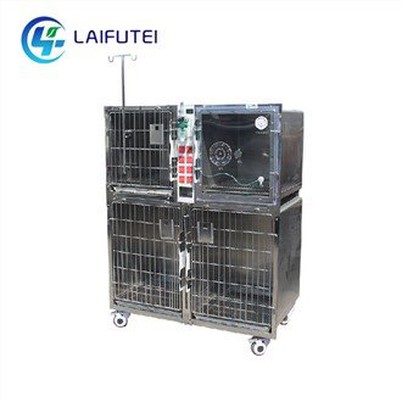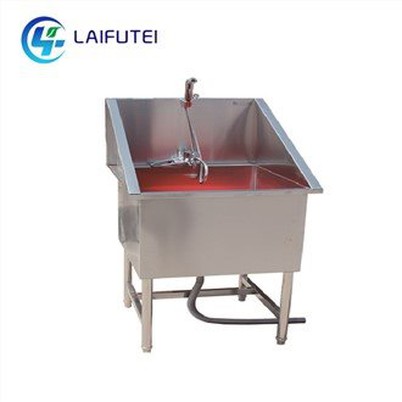What Is Critical Care For Pets?
Leave a message
What is critical care for pets?
Critical care for pets refers to the specialized veterinary care provided to animals that are in severe, life-threatening conditions. This level of care is comparable to the critical care units in human hospitals, where patients with severe injuries or illnesses receive intensive medical attention. In the field of veterinary medicine, critical care focuses on providing immediate and advanced treatment to stabilize and save the lives of pets in critical conditions. This article aims to explore the various aspects of critical care for pets, including its importance, common procedures, and the role of veterinarians in providing this specialized care.
Importance of Critical Care for Pets
Critical care plays a crucial role in saving the lives of pets in severe conditions. Just like humans, animals can face life-threatening situations due to accidents, illnesses, or complications arising from other medical conditions. In such situations, critical care becomes vital in providing immediate and appropriate treatment to stabilize the pet''s condition and prevent further deterioration. Without prompt intervention, these pets may succumb to their conditions, resulting in unnecessary suffering and potential loss of life.
Common Procedures in Critical Care
1. Monitoring: Monitoring is a fundamental aspect of critical care for pets. It involves continuous monitoring of vital signs such as heart rate, respiratory rate, blood pressure, oxygen levels, and body temperature. Through monitoring, veterinarians can assess the pet''s condition, identify any changes, and make necessary adjustments in the treatment plan.
2. Oxygen Therapy: Oxygen therapy is often required for pets in critical condition, especially those with respiratory distress or insufficient oxygen supply. It involves providing supplemental oxygen either through a mask or nasal cannula. Oxygen therapy helps improve oxygenation and maintain adequate tissue perfusion.
3. Fluid Therapy: Fluid therapy is an essential component of critical care, as it helps maintain hydration and corrects any fluid imbalances. Intravenous fluids are administered to provide necessary nutrients, electrolytes, and medications directly into the pet''s bloodstream. The type and amount of fluids administered depend on the pet''s specific needs.
4. Pain Management: Pets in critical condition may experience pain due to their injuries, illnesses, or medical procedures. Ensuring effective pain management is crucial to improve their comfort and overall well-being. Veterinarians may administer analgesics or pain medications to alleviate pain and closely monitor their response.
5. Nutrition Support: Pets in critical care often require nutritional support to aid in their recovery and support their weakened immune systems. This may involve specialized feeding tubes or intravenous nutrition, carefully tailored to meet their specific nutritional needs.
6. Wound Care: Pets with severe injuries may require specialized wound care. This may involve cleaning, debriding, and dressing wounds to prevent infection and promote healing. Veterinarians closely monitor the wound''s progress and may need to perform additional procedures such as surgical closure or grafting if necessary.
7. Medication Management: Critical care pets often require multiple medications to manage their conditions. Veterinarians carefully evaluate the appropriate medications, their dosages, and the frequency of administration. Additionally, they closely monitor the pet''s response to medications, making necessary adjustments as needed.
The Role of Veterinarians in Critical Care
Veterinarians play a crucial role in providing critical care for pets. They are trained to assess and diagnose pets in critical condition, develop and implement treatment plans, and closely monitor their progress. They possess a deep understanding of animal physiology and can provide immediate interventions such as resuscitation, stabilization, and surgical procedures if required.
Veterinarians also collaborate with a team of veterinary technicians and support staff to ensure comprehensive care for critical patients. These teams work in synchrony to provide round-the-clock care, as critical care is often time-sensitive and requires continuous monitoring and attention.
Moreover, veterinarians provide emotional support and guidance to pet owners during these challenging times. They explain the pet''s condition, treatment options, and prognosis, helping owners make informed decisions and provide necessary comfort to their beloved companions.
Conclusion
Critical care for pets is a specialized veterinary field that plays a vital role in saving the lives of animals in severe conditions. It involves a range of procedures such as monitoring, oxygen therapy, fluid therapy, pain management, nutrition support, wound care, and medication management. Veterinarians, along with their dedicated teams, provide immediate and advanced interventions to stabilize and improve the pet''s condition. Through critical care, countless pets have been given a fighting chance at survival and a path to recovery.







